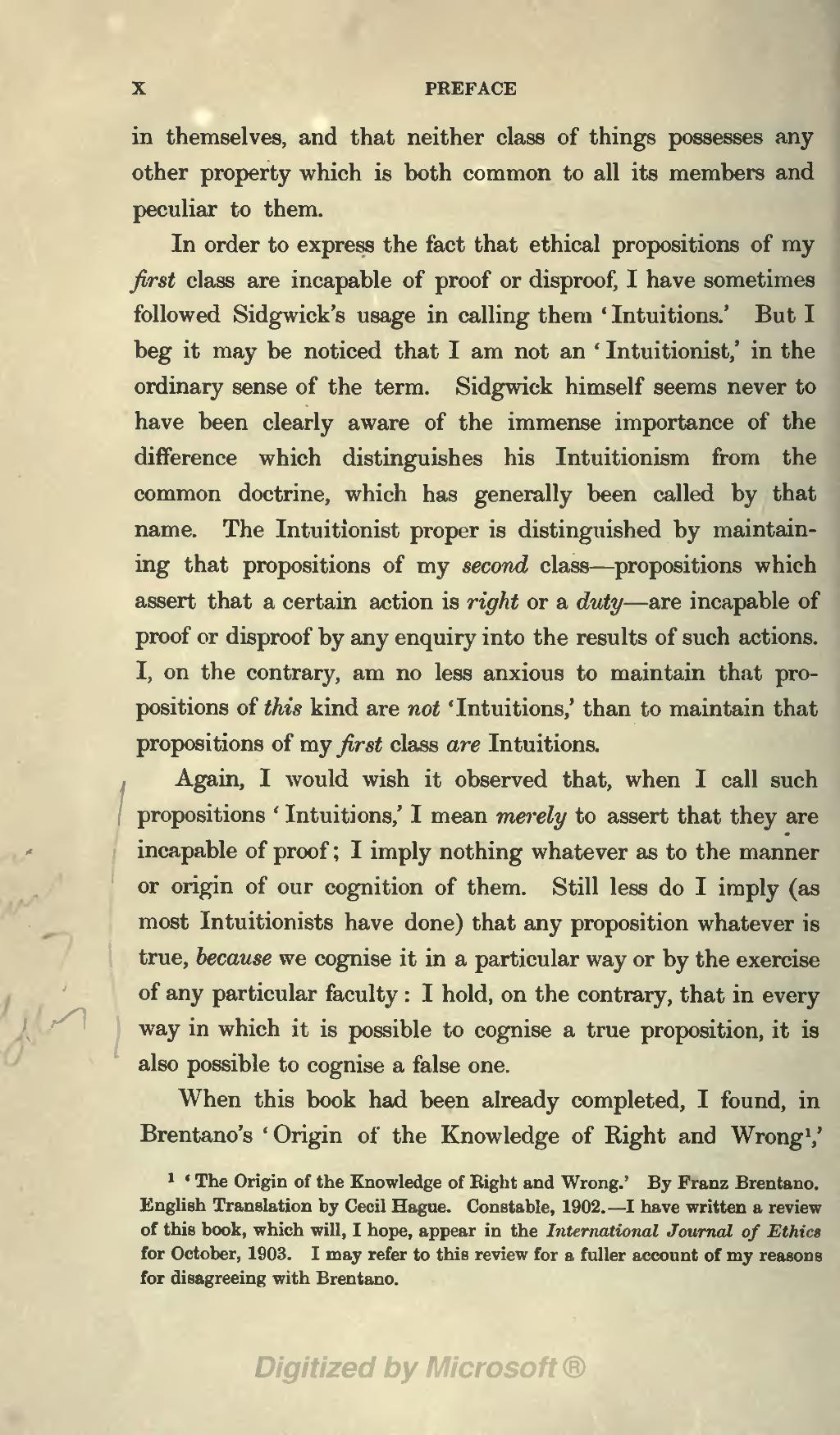in themselves, and that neither class of things possesses any other proper which is both common to all its members and peculiar to them.
In order to express the fact that ethical propositions of my first class are incapable of proof or disproof, I have sometimes followed Sidgwick’s usage in calling them ‘Intuitions.’ But I beg that it may be noticed that I am not an ‘Intuitionist,’ in the ordinary sense of the term. Sidgwick himself seems never to have been clearly aware of the immense importance of the difference which distinguishes his Intuitionism from the common doctrine, which has generally been called by that name. The Intuitionist proper is distinguished by maintaining that propositions of my second class—propositions which assert that a certain action is right or a duty—are incapable of proof or disproof by any enquiry into the results of such actions. I, on the contrary, am no less anxious to maintain that propositions of this kind are not ‘Intuitions,’ than to maintain that propositions of my first class are Intuitions.
Again, I would wish it observed that, when I call such propositions ‘Intuitions,’ I mean merely to assert that they are incapable of proof; I imply nothing whatever as to the manner or origin of our cognition of them. Still less do I imply (as most Intuitionists have done) that any proposition whatever is true, because we cognise it in a particular way or by the exercise of any particular faculty: I hold, on the contrary, that in every way in which it is possible to cognise a true proposition, it is also possible to cognise a false one.
When this book had been already completed, I found, in Brentano’s ‘Origin of the Knowledge of Right and Wrong[1],’
- ↑ ‘The Origin of the Knowledge of Right and Wrong.’ By Franz Brentano. English Translation by Cecil Hague. Constable, 1902.—I have written a review of this book, which will, I hope, appear in the International Journal of Ethics for October, 1903. I may refer to this review for a fuller account of my reasons for disagreeing with Brentano.

